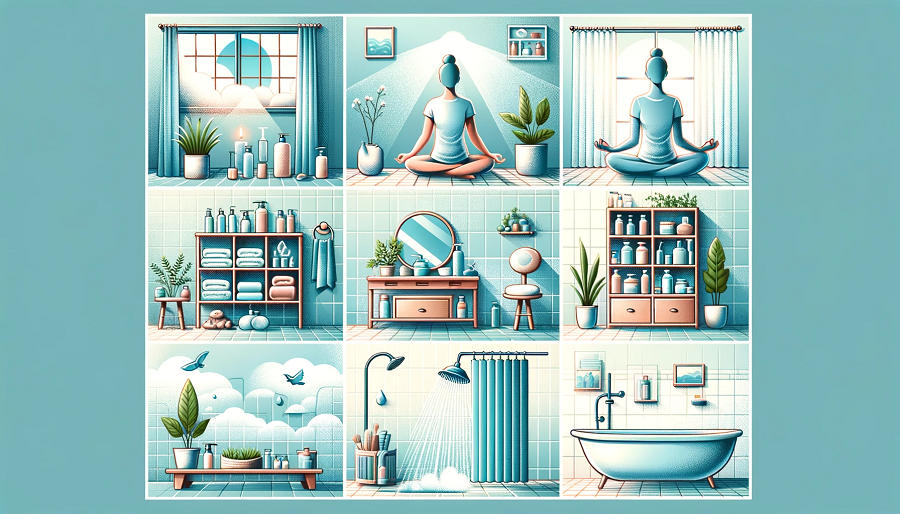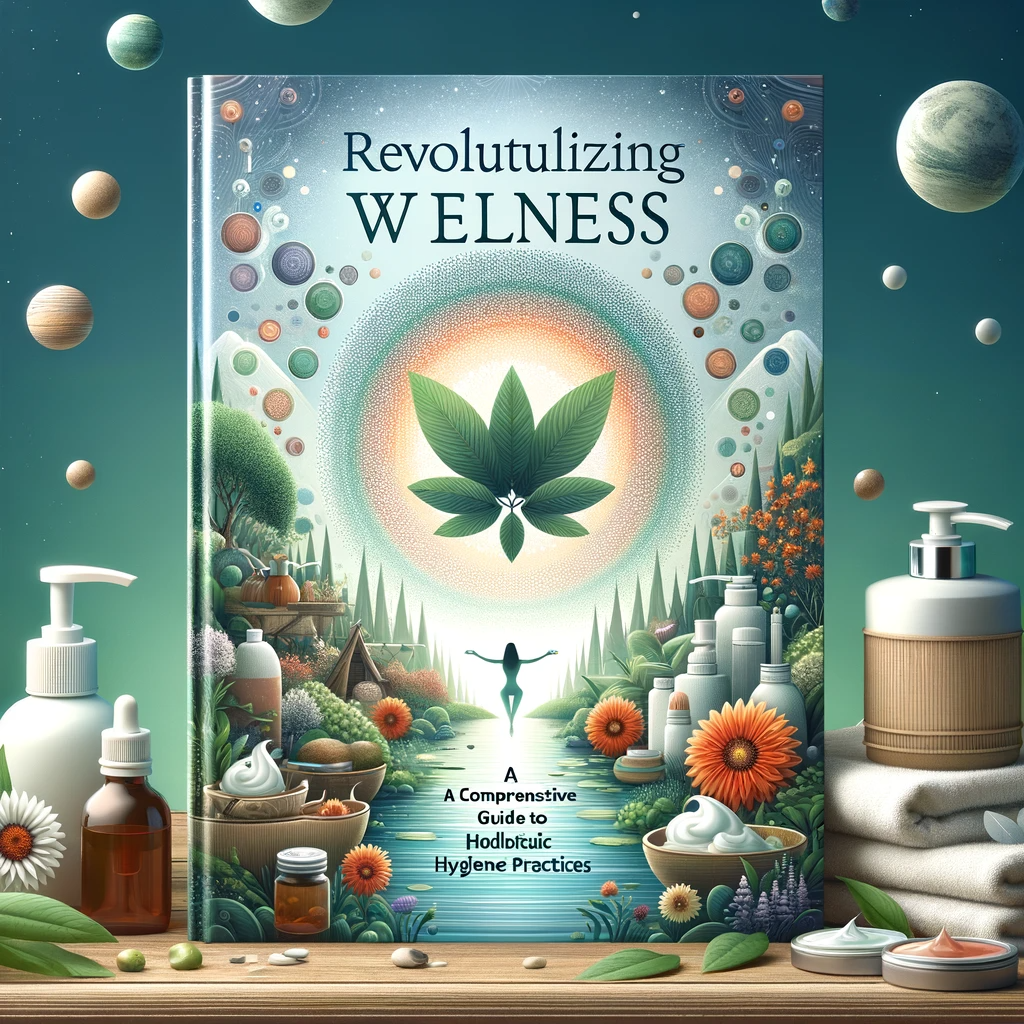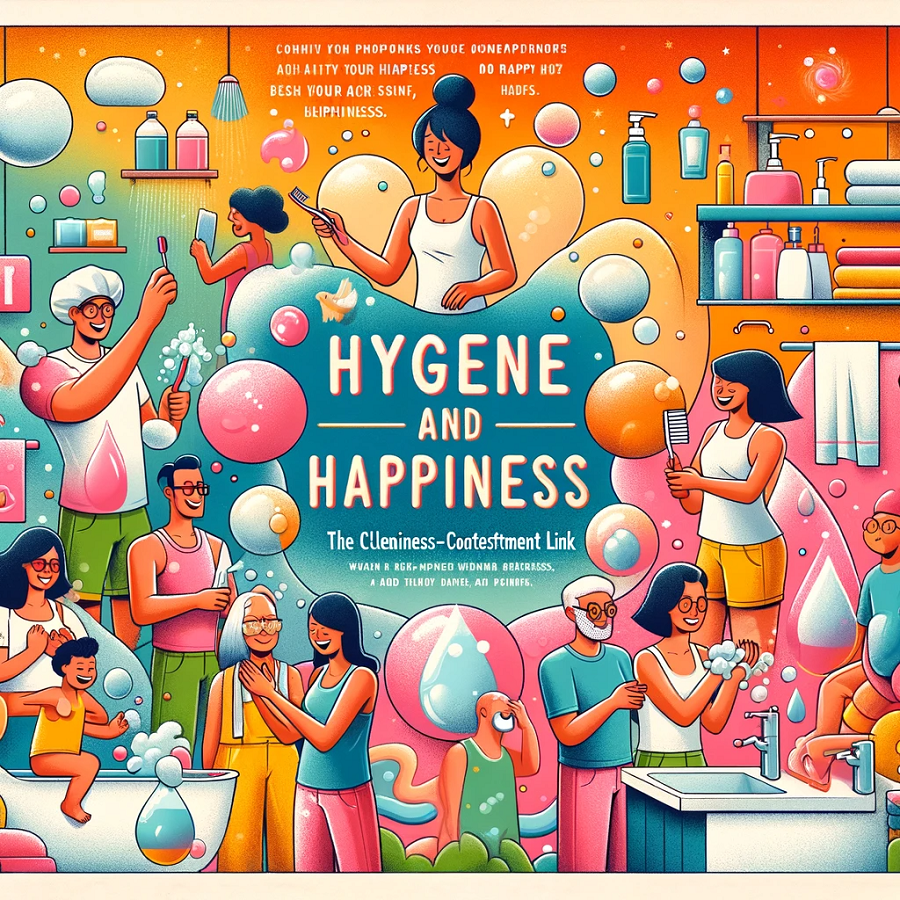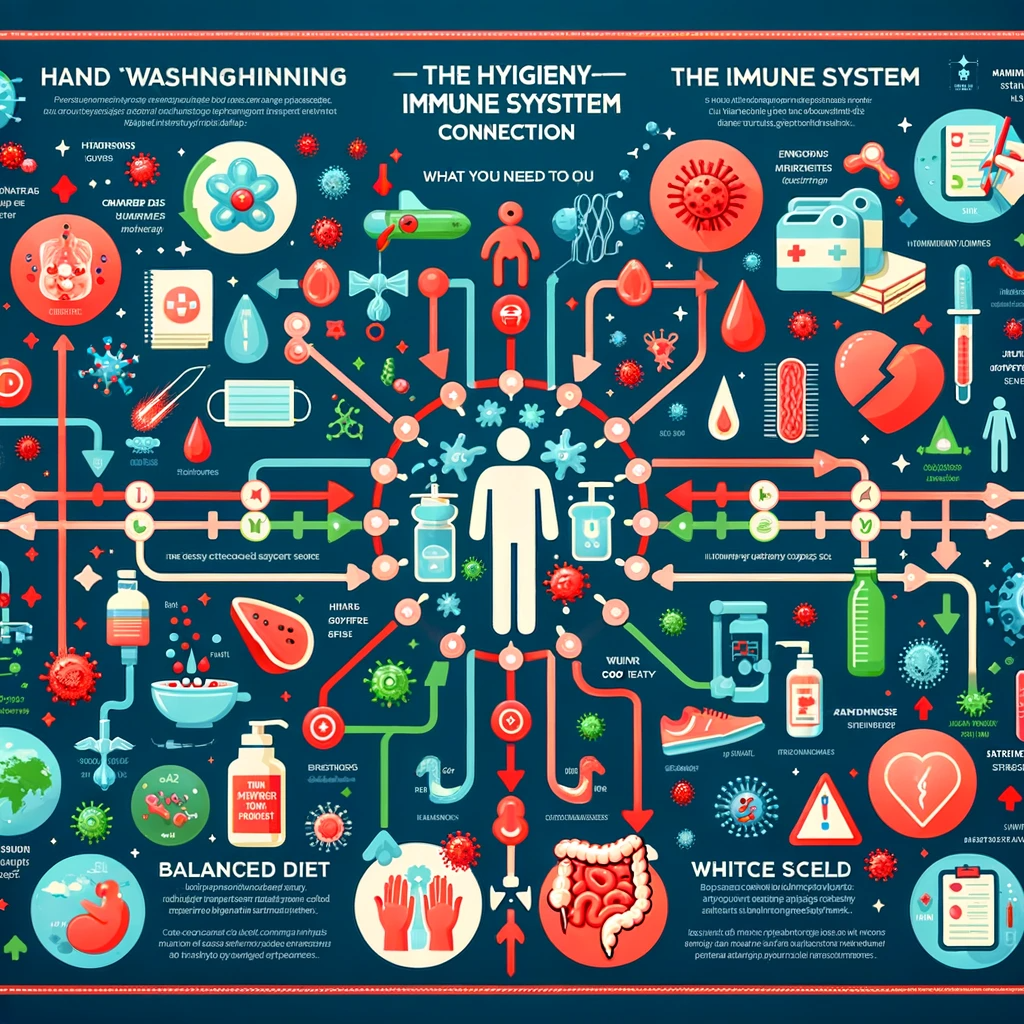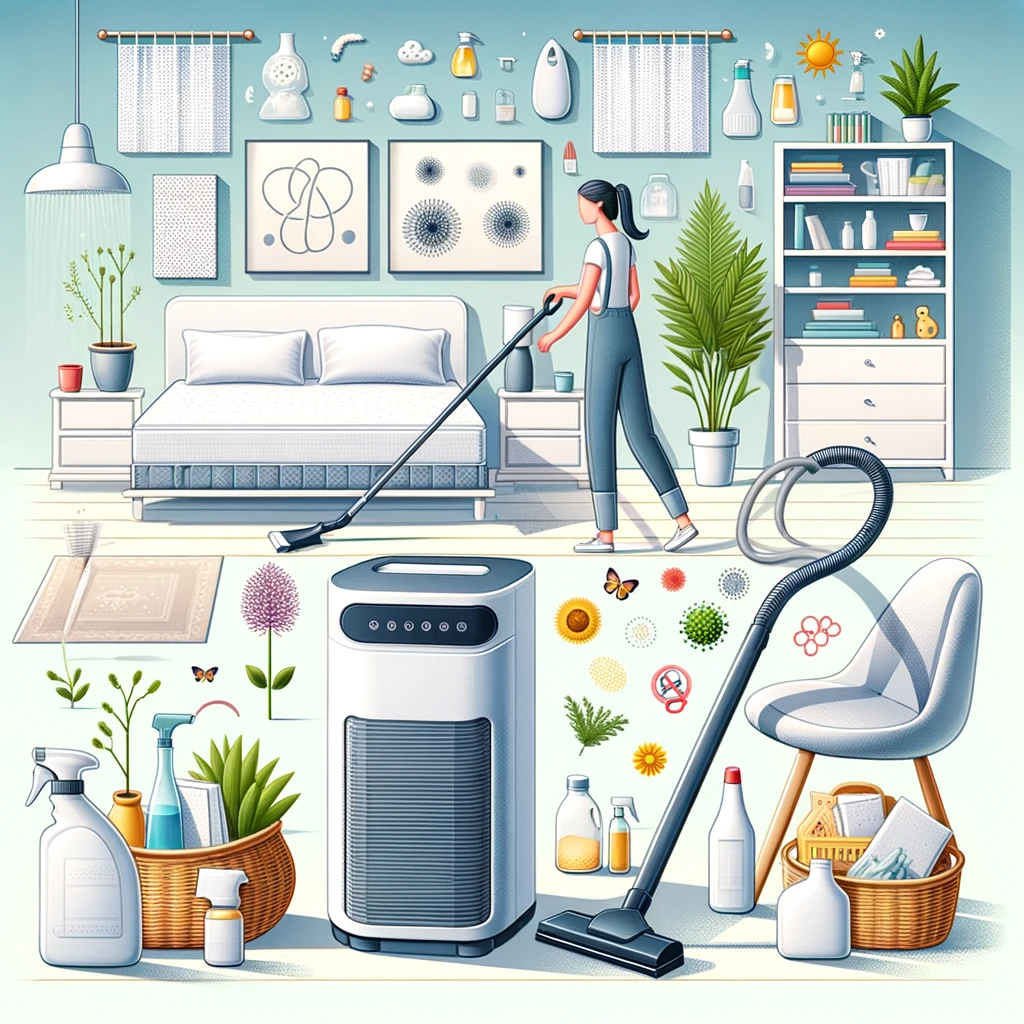In the intricate tapestry of factors contributing to mental well-being, hygiene emerges as a surprisingly influential thread. While often overlooked, the relationship between cleanliness and mental health is both profound and multifaceted. This series of articles delves into the various aspects of how hygiene habits can shape our mental state, from the undeniable connection between personal cleanliness and psychological well-being to the impact of environmental tidiness on our mental health. We explore how establishing a hygiene routine can serve as a cornerstone for mental wellness, unravel the science underlying this connection, and provide practical tips for harnessing hygiene’s power to enhance mental clarity and emotional balance. Moreover, we’ll look at the habits to avoid, measure the tangible impacts of these practices, and understand the role of environmental cleanliness in fostering a healthy mind. Each segment of this series is crafted to shed light on this often-overlooked aspect of mental health, offering readers a comprehensive understanding and actionable guidance to improve their mental well-being through mindful hygiene practices.
| Topic | Tips and Tricks | Related Information |
|---|---|---|
| Personal Hygiene | – Establish a daily hygiene routine. | – The impact of grooming on self-esteem. |
| – Incorporate mindfulness into grooming activities. | – The link between oral hygiene and mental health. | |
| – Choose natural and mental health-friendly products. | – The role of diet in personal hygiene. | |
| Environmental Cleanliness | – Declutter and organize your living space regularly. | – The connection between workspace cleanliness and productivity. |
| – Add calming elements to your home environment, such as plants. | – The impact of public space cleanliness on community mental health. | |
| – Maintain a clean and organized workspace. | – Creating a soothing living space for mental well-being. | |
| Building a Hygiene Routine | – Customize your routine to your needs and preferences. | – Consistency is key to building and sustaining hygiene habits. |
| – Include relaxation techniques in your routine. | – Aromatherapy and its impact on mental health. | |
| – Overcome motivation challenges with small rewards. | – Cultural perceptions of cleanliness. | |
| Avoiding Detrimental Habits | – Recognize harmful hygiene practices and their consequences. | – Balancing excessive cleanliness with mental well-being. |
| – Seek professional help for obsessive cleanliness tendencies. | – Effects of neglecting personal hygiene on mental health. | |
| – Avoid toxic ingredients in personal care products. | – Harmful chemicals commonly found in hygiene products. | |
| Measuring the Impact | – Use self-assessment tools to monitor mental health changes. | – Quantifying the psychological benefits of hygiene practices. |
| – Seek professional evaluations for a comprehensive understanding. | – Long-term studies on hygiene and mental well-being. | |
| – Incorporate mental well-being metrics into personal hygiene evaluation. | – Emerging trends in hygiene and mental health research. |
Mental Well-being and Hygiene: Understanding the Connection
Introduction: The Link Between Cleanliness and Mental Health
- Overview of how hygiene impacts mental well-being.
- Brief explanation of psychological theories supporting this connection.
The Biology of Cleanliness and Mental Health
- Exploring neuroscientific perspectives.
- How hygiene affects stress levels and brain chemistry.
Cultural and Social Aspects
- Cultural perceptions of cleanliness and their impact on mental health.
- The role of societal norms in shaping hygiene habits.
Case Studies and Research Findings
- Summarizing key studies linking hygiene and mental health.
- Real-life examples demonstrating this relationship.
The Top Hygiene Practices for Enhancing Mental Health
Fundamentals of Hygiene for Mental Well-being
- Core hygiene practices that benefit mental health.
- Daily routines and their psychological impacts.
Physical Exercise and Cleanliness
- The role of physical cleanliness in post-exercise mental rejuvenation.
- How regular exercise contributes to both physical and mental hygiene.
Nutritional Hygiene and Mental Health
- The importance of dietary cleanliness for mental well-being.
- Tips for maintaining a clean and healthy diet.
Sleep Hygiene
- The critical role of sleep in mental health.
- Best practices for maintaining good sleep hygiene.
How Personal Cleanliness Affects Your Mental Well-being
The Psychology of Personal Cleanliness
- Understanding the mental effects of personal hygiene.
- The impact of grooming and personal care on self-esteem and mood.
Skin Care and Mental Health
- The relationship between skin health and mental well-being.
- Practical tips for a skin care routine that boosts mental health.
Oral Hygiene and Its Psychological Impacts
- Exploring the connection between oral health and mental well-being.
- Best practices in oral hygiene for mental health benefits.
The Importance of a Clean Living Space
- How environmental cleanliness affects your mind.
- Tips for maintaining a clean and mentally soothing living environment.
Building a Hygiene Routine for Better Mental Health
Creating a Personal Hygiene Routine
- Steps to establish a daily hygiene routine tailored to individual mental health needs.
- The importance of consistency in maintaining hygiene habits.
Integrating Mental Health Practices into Hygiene Routines
- Techniques for incorporating mindfulness and relaxation into daily hygiene activities.
- The role of aromatherapy and soothing environments in enhancing the mental benefits of hygiene.
Overcoming Challenges in Hygiene Maintenance
- Addressing common obstacles to maintaining regular hygiene practices.
- Strategies for building and sustaining motivation for a hygiene routine.
Monitoring Progress and Adjusting Habits
- Tools and methods for tracking the impact of hygiene habits on mental well-being.
- Adjusting hygiene routines in response to changes in mental health.
The Science Behind Hygiene and Mental Well-being
Neurological and Psychological Foundations
- An overview of the brain mechanisms influenced by hygiene practices.
- Psychological theories explaining the hygiene-mental health connection.
The Impact of Hygiene on Stress and Anxiety
- How cleanliness can reduce stress and anxiety levels.
- Case studies showcasing the effects of hygiene on mental health disorders.
Hygiene and Its Role in Mood Regulation
- Understanding how personal cleanliness affects mood and emotional well-being.
- Research findings on the mood-enhancing benefits of good hygiene.
Future Directions in Hygiene and Mental Health Research
- Emerging trends and future research areas in the field.
- Potential advancements in understanding the hygiene-mental health link.
Practical Tips for Improving Mental Health Through Hygiene
Daily Hygiene Habits for Mental Clarity
- Simple yet effective daily hygiene practices to boost mental clarity.
- The role of water and its psychological benefits.
Enhancing Mental Well-being Through Organizational Cleanliness
- The psychological impact of an organized and clean living space.
- Tips for decluttering and maintaining a tidy environment.
Personal Grooming and Self-Esteem
- How personal grooming rituals can enhance self-esteem and mental health.
- Tailoring grooming habits to individual needs and preferences.
The Importance of Regular Health Check-ups
- The link between physical health, hygiene, and mental well-being.
- How regular health check-ups contribute to overall mental health.
Exploring the Psychological Benefits of Good Hygiene
Boosting Confidence and Self-Image
- How maintaining good hygiene positively impacts self-confidence and body image.
- Strategies for using hygiene to enhance personal self-worth.
Hygiene as a Form of Self-Care
- Understanding hygiene as an essential component of self-care.
- Ways to transform hygiene routines into self-care practices.
The Calming Effects of Cleanliness
- Exploring how cleanliness provides a sense of calm and order.
- Techniques for using hygiene to alleviate stress and promote relaxation.
Building Social Bonds Through Hygiene
- The role of hygiene in social interactions and relationships.
- How good hygiene habits can improve social confidence and connections.
Hygiene Habits to Avoid for Maintaining Mental Well-being
Recognizing Detrimental Hygiene Practices
- Identifying common hygiene habits that can negatively impact mental health.
- Understanding the reasons why certain practices are harmful.
The Psychological Downside of Excessive Cleanliness
- Exploring the mental health implications of obsessive cleaning and hygiene routines.
- Balancing cleanliness with mental well-being.
Neglecting Personal Hygiene: Consequences and Prevention
- The mental health effects of neglecting personal hygiene.
- Strategies for overcoming challenges that lead to poor hygiene habits.
Avoiding Toxic Products in Hygiene Routines
- Identifying and avoiding harmful chemicals in personal care products.
- Recommendations for natural and mental health-friendly hygiene products.
The Role of Environmental Cleanliness in Mental Health
The Psychological Impact of a Clean Environment
- Understanding how a clean and organized space influences mental health.
- The connection between environmental cleanliness and cognitive clarity.
Creating a Mentally Soothing Living Space
- Tips for maintaining a clean living environment that promotes mental well-being.
- Incorporating elements of nature and tranquility into home cleaning routines.
The Effects of Workspace Cleanliness on Mental Health
- Exploring the impact of a clean workspace on productivity and mental health.
- Practical advice for maintaining an organized and clean working environment.
Environmental Cleanliness in Public Spaces and Mental Well-being
- The significance of public space cleanliness on community mental health.
- The role of individuals and authorities in maintaining clean public environments.
Measuring the Impact of Hygiene on Mental Well-being
Quantifying the Mental Health Benefits of Good Hygiene
- Methods and tools for measuring the psychological impact of hygiene habits.
- Case studies and research findings on the tangible benefits of cleanliness.
Personal Hygiene and Mental Health Assessments
- Guidelines for self-assessing the mental health effects of personal hygiene routines.
- Incorporating mental well-being metrics into personal hygiene evaluation.
The Role of Professional Evaluations
- The importance of professional assessments in understanding the hygiene-mental health relationship.
- How mental health professionals can help in evaluating and adjusting hygiene habits.
Long-term Studies and Their Findings
- Overview of long-term research on the correlation between hygiene and mental well-being.
- Implications of these findings for future hygiene and mental health practices.
Final Thoughts
Our journey through the intricate relationship between hygiene and mental well-being has unveiled a fascinating interplay between the two. We’ve learned that personal cleanliness is not merely a physical endeavor but a powerful influencer of our psychological state, affecting everything from self-esteem to stress levels. Environmental cleanliness, too, plays a pivotal role in creating spaces conducive to mental clarity and emotional well-being. By building a hygiene routine tailored to our individual needs, we can harness the positive effects of cleanliness on our minds. However, it’s equally important to recognize and avoid detrimental hygiene practices that can harm our mental health. Through measurement and assessment, we’ve quantified the tangible benefits of these practices, reinforcing the significance of mindfulness in our daily hygiene routines. As we conclude, it’s clear that by embracing hygiene as an integral part of self-care, we can pave the way to a healthier, happier, and more mentally resilient life.
FAQs (Frequently Asked Questions)
1. How does personal hygiene impact mental well-being?
- Personal hygiene plays a significant role in mental well-being by boosting self-esteem, reducing stress, and enhancing overall self-confidence. When you feel clean and well-groomed, it positively influences your mood and emotional state.
2. Can excessive cleanliness have negative effects on mental health?
- Yes, excessive cleanliness, often associated with obsessive-compulsive tendencies, can have detrimental effects on mental health. It may lead to heightened anxiety and stress. Balance in hygiene practices is essential for mental well-being.
3. What is the connection between environmental cleanliness and mental health?
- A clean and organized living space contributes to a sense of calm and clarity. It can help reduce mental clutter, improve focus, and enhance overall mental well-being.
4. How can I build a hygiene routine for better mental health?
- Start by establishing a daily hygiene routine that suits your preferences and needs. Incorporate mindfulness techniques and relaxation into your routine to enhance its mental health benefits.
5. Are there any recommended hygiene practices for maintaining mental clarity?
- Yes, practices such as regular physical exercise, a clean living environment, and good sleep hygiene can contribute to mental clarity and emotional balance. These habits can help you stay mentally sharp.
6. How can I assess the impact of my hygiene habits on my mental well-being?
- You can self-assess by tracking changes in your mood, stress levels, and self-esteem as you adjust your hygiene routines. Additionally, seeking professional guidance from mental health experts can provide a more in-depth evaluation.
7. Are there specific products or ingredients I should avoid in my hygiene routine for mental well-being?
- It’s advisable to avoid products with harmful chemicals, allergens, or irritants. Opt for natural and mental health-friendly hygiene products to ensure they don’t negatively affect your well-being.
8. What are some future trends in the study of hygiene and mental health?
- Future research may focus on the impact of emerging technologies, such as smart hygiene devices, on mental health. Additionally, there could be a growing emphasis on eco-friendly and sustainable hygiene practices.
9. Can hygiene practices help in managing mental health disorders like anxiety and depression?
- While hygiene practices alone may not replace professional treatment, they can be complementary. Maintaining good hygiene can contribute to overall mental well-being and potentially alleviate some symptoms of anxiety and depression.
10. How can I use hygiene as a form of self-care?
- Transform your hygiene routines into self-care rituals by approaching them mindfully. Pay attention to the sensations and feelings associated with each practice. Create a soothing and calming atmosphere to enhance the self-care aspect of hygiene.

